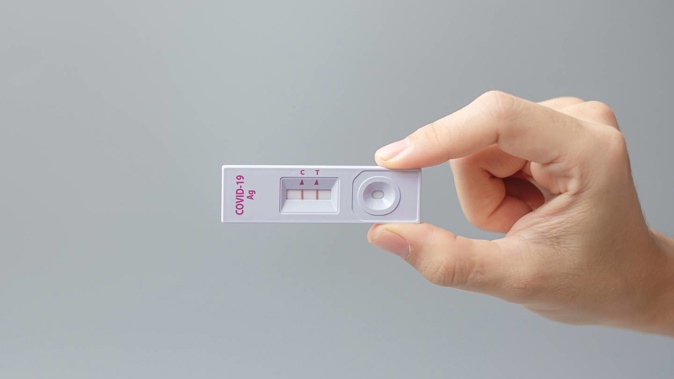
The ditching of New Zealand’s last Covid-19 protections hasn’t triggered any big bounce-back in coronavirus, but experts say more time will be needed to properly gauge the impact on cases.
Last month’s rollbacks spelt the end of the seven-day self-isolation mandate for infected people, along with requirements to mask at certain healthcare facilities.
Dropping those controls, which were kept in place over winter to ease strain on the health system, was seen as a reasonable move by Covid-19 modellers, who expected them to hold only marginal long-term benefits.
Just over one month on, there’s nothing to suggest cases have dramatically jumped, with reported cases and wastewater-screened virus levels still running at relatively low levels.
Although the virus was being detected at all ESR-monitored wastewater sites, in the week to September 4, levels were about 10 times less than what they were on December 18 and just a third of those recorded amid April’s “mini-wave”.
“It doesn’t look like there’s been an increase in infections across the board,” Covid-19 Modelling Aotearoa’s Professor Michael Plank said.
“It’s possible that’s partly due to the fact that people are still recommended to isolate for five days, and that people are still continuing to do that in many cases.”
Plank added that, while there’d been a recent increase in cases among older groups, along with a slight uptick in hospital admissions, it wasn’t clear this was a result of the change.
“It could potentially be an after-effect of the relaxation of masking requirements, but it’s hard to pin that down to one particular cause, and there could be a range of factors at play.”
At this point, he didn’t expect the shift away from mandated isolation to have lasting consequences for virus spread.
“We’re not in the situation now of having some public health measures as an emergency situation for a few months; we’re really talking about what measures are sustainable to keep in place for the long term, because Covid is with us for the long term,” he said.
“But I don’t think relaxing the mandate for isolation for confirmed cases will have a huge impact on long-term case levels.”
Besides a succession of small bumps this year, New Zealand hasn’t experienced a significant Covid-19 surge since last Christmas.
Since then, local transmission has been driven by a soup of circulating Omicron subvariants, notably a string of hybrid “recombinant” lineages that continue to make up the bulk of genomically-sequenced virus samples.
Each of these strains has packed some immune-evasion advantage, but only enough to keep slight pressure on case numbers in what’s now a well-exposed, highly vaccinated population.
Provided our variant landscape doesn’t change drastically, Plank expects to see case rates continue to fluctuate with seasons, waning immunity and other factors like school holiday periods.
“We’ll continue to see relatively small waves – that’s to be expected – but it will all partly depend on what happens with new variants, and there’s nothing dramatic happening on that front at the moment.”
While the spread of genetically distinct, highly mutated variant BA.2.86 was drawing close attention from world health authorities, there was nothing yet to suggest “Pirola” – yet to be detected here – represented a pandemic game-changer.
“Of course, it’s something to keep an eye on, and there could be a variant that does do something a bit more dramatic in the future, so we need to ensure we keep that surveillance capability in place.”
Otago University epidemiologist Professor Michael Baker wasn’t surprised there hadn’t been a big case jump and hadn’t anticipated one himself.
“I don’t think anyone was expecting a case explosion after removing those restrictions.”
Otago University epidemiologist Professor Michael Baker.
Baker suspected that, well before the final controls were lifted, the public had begun shifting away from them.
“So, it wasn’t like there was suddenly a flood of people going back to work or school.”
At the same time, it was possible Kiwis had become more vigilant themselves toward a virus that’s nearly claimed twice as many lives in 2023 as the flu does in an average year, while leaving countless more with ongoing, lingering symptoms.
“The hope is that these restrictions have already achieved one of their goals, which is a cultural shift toward people no longer soldiering on when they’ve got a respiratory illness, and staying home.”
Either way, Baker saw a vital need for work to evaluate the public’s response to the rollbacks.
“If there was a very detailed analysis, it might well be able to find some signal coming through that resulted in some sort of change.”
Jamie Morton, a specialist in science and environmental reporting for the New Zealand Herald, has spent the last decade writing about everything from conservation and cosmology to climate change and Covid-19.
Take your Radio, Podcasts and Music with you

/cloudfront-ap-southeast-2.images.arcpublishing.com/nzme/BDJDOZSI5JFUNIQMRGP7RN4PRU.JPG)








